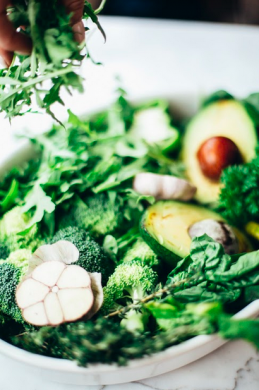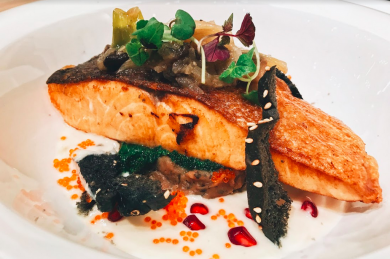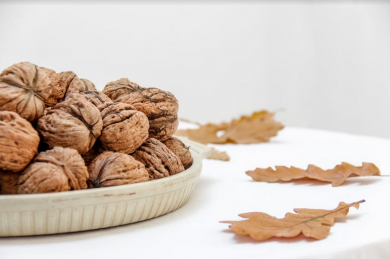
Brain health and the foods you eat (part one)
When you think about your health and your body, do you think about the health of your brain?
It is possibly the most powerful and important organ we have in our body. There are endless diets, detox programmes, gym workouts, so many steps per day for our organs, however do you think of your brain as an organ? The brain controls our thoughts, memory and speech, movement of the arms and legs, and the function of many organs within our body. The central nervous system (CNS) is composed of the brain and the spinal cord. What we eat, what we think, how we relax, what we watch on TV or our phones, computers, books we read, conversations we have, the words we speak.
All of this has a cause and effect on our brain which in turn has a cause and effect on our health. Around the world there appears to be increasing problems with mental health, from anger, sadness, social recoil, anxiety, mood swings, depression, etc., Many of these conditions can be prevented or reversed with changes to our food consumption, lifestyle and choices that we make on a day to day level. If we think about our brain as one of the three vital organs in our body that we cannot live without, why is it that we pay it very little attention. Are you feeding your brain with information that can stimulate your ideas and help to broaden your horizons? What are the useless thoughts that you have each day that do nothing to help your brain be healthy? What brain food do you eat each day to help combat memory loss, anger, distraction, drifting thoughts etc.
There are a few restaurants in the USA and UK that are now asking customers to place their phones in little buckets or a vase placed in the centre of the table while they have dinner. You are only able to retrieve the phone when you leave the restaurant. This is one way of feeding the brain and keeping it healthy with conversation. All the technology and distractions collectively have an effect on our brain and not always for the better. A small caveat, there are times when being able to access information from a handheld device takes a lot of stress out of a situation. For example, finding where you want to go with the least amount of effort with “maps”.
We require a healthy brain for the millions of functions that happen in our bodies, most without us being truly aware of them. We must not become complacent about the many automatic processes that the body moves through each and every day The internal balance is one that never switches off. It is always doing its best to maintain its balance if we feed it. Eating certain foods have shown that our memory function and concentration can improve. Around the world certain spices, herbs, plants are being tested and researched for answers in Dementia and Alzheimer’s. The list below is only the beginning of many wonderful foods that can help to keep our brains functioning in the best possible way.

Green leafy vegetables – The variety around the world is exceptional, from kale, spinach, collards, bok choy, pad choy, Choy sum, broccoli, bad po, Phak bung, Phak kat honge, Phak kat khao, Phat kat khiao also known as Mustard Greens, (by far my favourite green vegetable). There has been research (published in Neurology US and the study was done over 5 years), to show that these vegetables help to slow cognitive decline. Broccoli contains Vitamin K and other compounds that give it anti-inflammatory and antioxidant effects, which may help protect the brain against damage.

Fatty fish – the source of Omega-3 fatty acids and healthy unsaturated fats we now know are linked to lowering the protein that forms clumps in the brain of people with Alzheimers. These proteins are called beta-amyloid. Once or twice a week is better to help your brain with salmon, trout and sardines. One study found that people who ate baked or broiled fish regularly had more grey matter in their brains. Grey matter contains most of the nerve cells that control decision making, memory and emotion.
Avocado is a fatty fruit, is a monounsaturated fat, which contributes to healthy blood flow. Our blood is our lifeline, healthy blood flow means a healthy brain. Berries – also called super fruits. I think all food is super, however, in a study in 2012 berries were shown to not only help improve memory but slow memory loss down in another study group. Strawberries, blueberries, raspberries which are full of antioxidants (which means reduce oxidative stress on cells) and flavonoids. They improve blood sugar levels, insulin and are high in vitamin C, vitamin K1 and Manganese.

Walnuts – excellent protein and healthy fat for your brain. Walnuts are high in a type of Omega-3 fatty acid called alpha-linolenic acid (ALA), which helps lower blood pressure and protects arteries. That’s good for both the heart and brain. Some foods look like what they are good for. This is called Doctor of Signatures. If you look at the nut of the walnut it looks just like the two halves of the brain.

Tea and coffee – in excess to stay up all night to crunch for exams, I would not be recommending it. However, looking at properties of caffeine in studies your morning cup of coffee or tea might offer more than just a short-term concentration boost. In a 2014 study published in The Journal of Nutrition, participants with higher caffeine consumption scored better on tests of mental function. Caffeine might also help solidify new memories, according to other research. Investigators at Johns Hopkins University asked participants to study a series of images and then take either a placebo or a 200-milligram caffeine tablet.
More members of the caffeine group were able to correctly identify the images on the following day. Just as there is no magic pill to prevent cognitive decline, no single almighty brain food can ensure a sharp brain as you age. As a nutritionist the first place to start is with a strategy of a healthy balanced eating pattern. Always include a variety of vegetables (daily) along with fruit. Next on your dietary plan is legumes and whole grains plus protein. Never skip protein. Do your best to eat protein from plant sources along with fish. Choose healthy fats, such as olive oil, canola, peanut, flaxseed, sesame seed, sunflower or walnut to name a few rather than saturated fats.
Feed your brain and cherish this amazing organ, to be continued.
‘The brain is wider than the sky’ by Emily Dickinson.
Health and Happiness
Karla Walter
[email protected]
www.5seasonsliving.com



